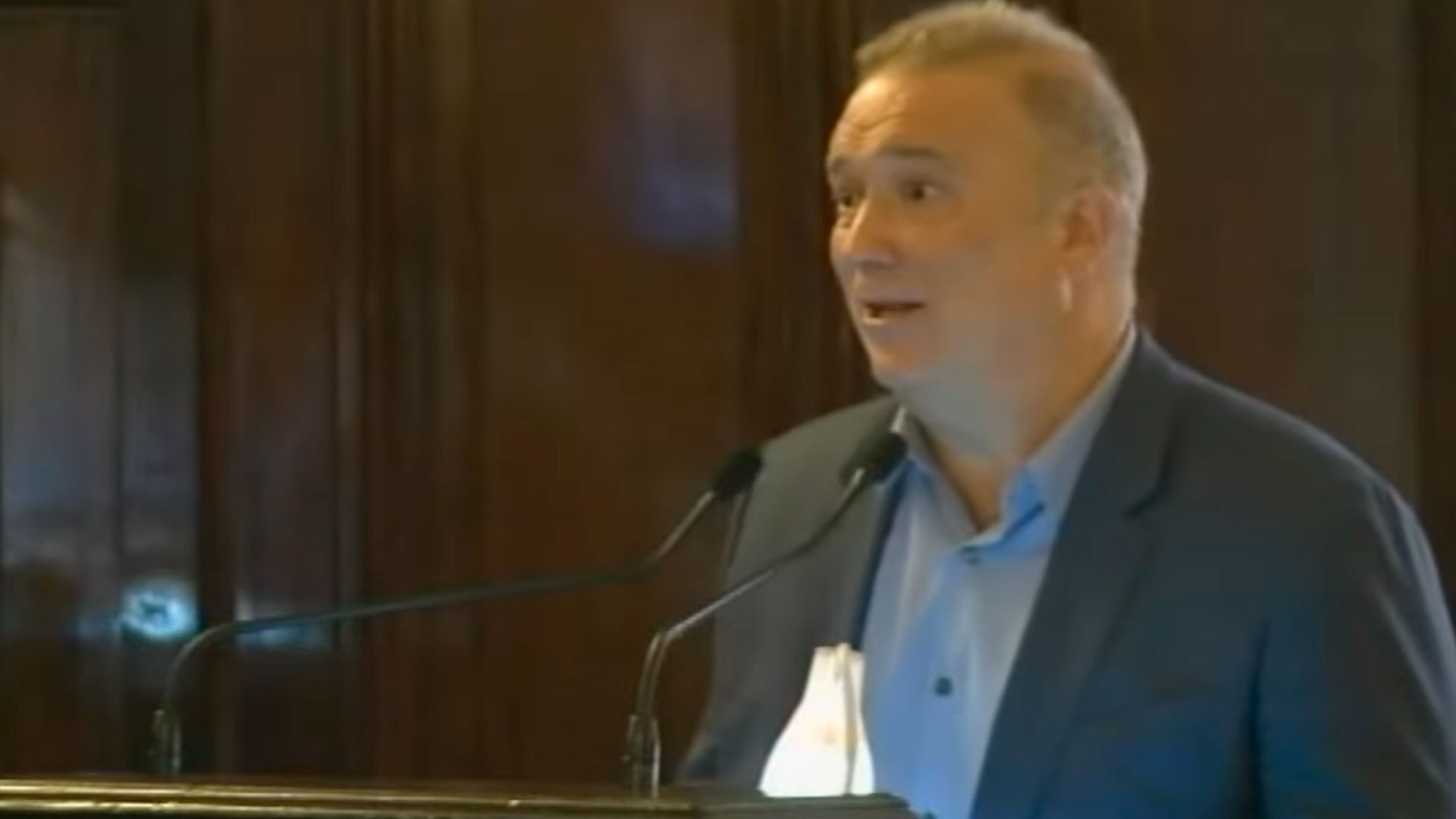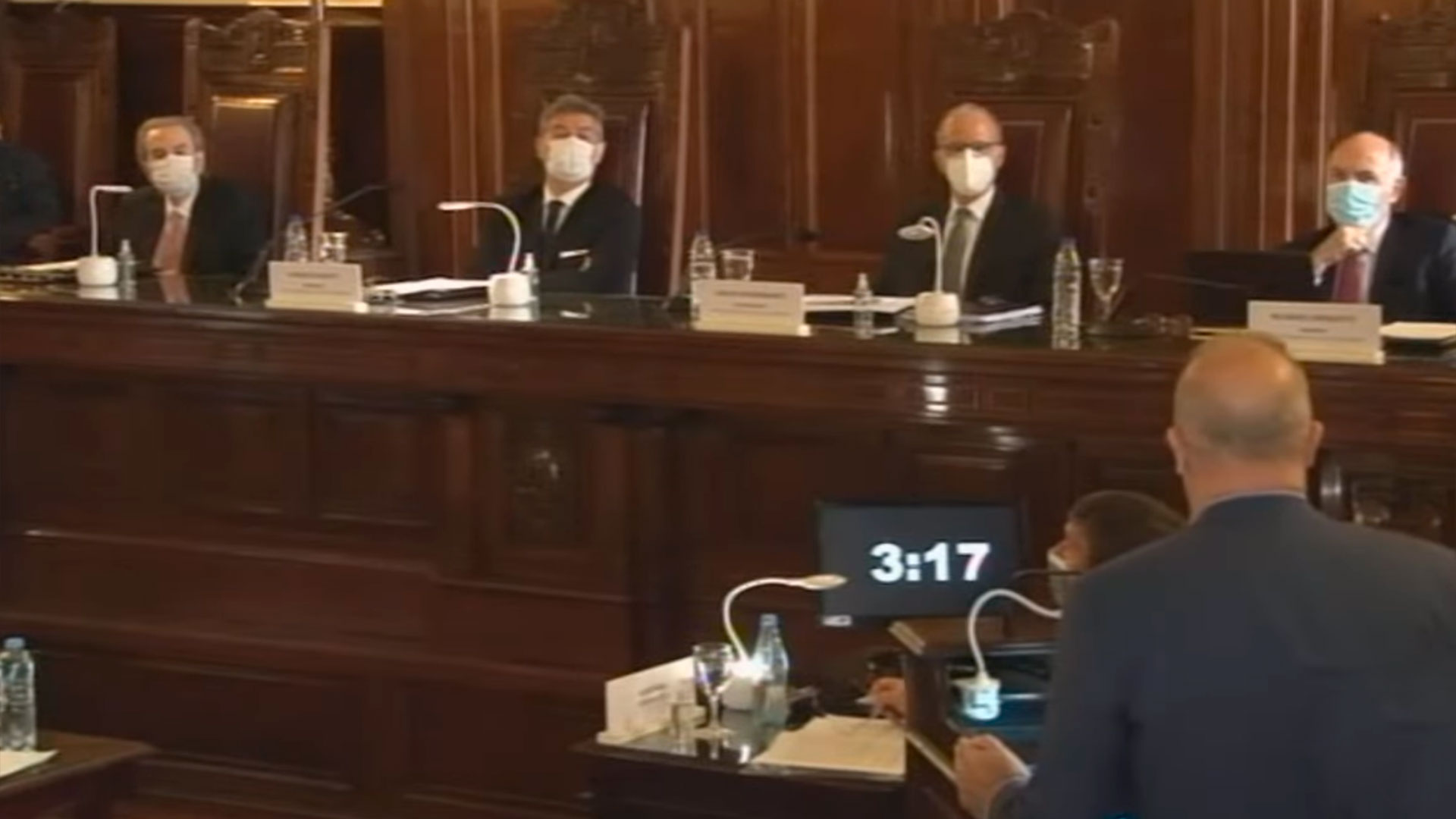
The battle seems to be waged between the “right to be forgotten” and the “freedom of expression”. This is what the justices of the Supreme Court of Justice heard today when they spoke with twelve “friends of the court” who pleaded for and against the lawsuit filed against Google Natalia Denegri, a young woman who made herself known in the 90s with the Cóppola case and who today is in the process of 'Today I don't want all this scandal to affect your new life. Journalistic entities, civil associations, interested lawyers and mediators were divided in their arguments for and against.
Journalistic associations have raised the seriousness of restricting to search engines the legal content of what constituted an act of corruption and which showed a way of doing television in the absence of the Internet. Faced with this, he demanded to limit what other “digital pasts” can be erased from the network affecting the public interest.
Those who advocated for Denegri argued that, in this case, she was a minor who had been raped and that women's rights that “it's not no” must be respected with today's gaze. One of the people called even appealed to a popular saying: “What happened in Las Vegas stays in Las Vegas, but everything that happened on the Internet remains on the Internet. We are all entitled to a second chance.”
It was the Ombudsman of Buenos Aires, Guido Lorenzino, who gave the color note in the audience when he spoke of “digital gender violence”, how we can choose our gender but “take ownership of our digital data” and presented to the audience the figure of Vice-President Cristina Kirchner, who initiated a Pre- lawsuit against Google.
“Google's lack of algorithmic transparency allowed her name to be indexed on fake content, which caused obvious damage to her person and honor, as well as to democratic institutions and the presidential nomination. The case of Natalia Denegri and Cristina Kirchner are two similar cases that lead us to a conclusion: either we limit ourselves to algorithms, or algorithms will condition our rights and institutions,” Lorenzino said. And he asked the court to require Congress to deal with a bill to create the National Algorithms Agency.

The meeting took place between 10 am and noon, on the fourth floor of the courthouse, in front of judges Horacio Rosatti, Carlos Rosenkrantz, Juan Carlos Maquda and Ricardo Lorenzetti, who, masked, reopened the stage of public hearings, held back by the pandemic. The hearing, in the presence of Natalia Denegri and Google's lawyers, will continue tomorrow, when it is time to talk about the protagonists of the case and the Attorney General. It will be time for the ministers of the court to ask their questions. The judges will then deliberate, without delay, on their verdict.
The choice of voices has also been chosen. On both sides, arguments were heard to ratify or revoke the trial, which already had two favorable resolutions. The “friends” of the court they presented today were: the Ombudsman of the Autonomous City of Buenos Aires, María Rosa Muiños; the Association of Argentine Journalistic Entities (ADEPA); Andrés Gil Domínguez and Raul Martínez Fazzalari; the Association for Civil Rights (ADC); Horacio Roberto Granero; Center for Studies Legal and Social (CELS); Ricardo Alberto Muñoz (m); the Civil Association for Constitutional Studies (AFIC); Francisco Javier Seminara; the Usina de Justicia Civil Association; the Buenos Aires Ombudsman Guido Lorenzino; and the LED Foundation Freedom of Expression+Democracy.
In favor of Natalia Denegri, the mediators said. María Rosa Muiñoz argued that it is necessary to take into account the fact that “women” suffer harm when they associate them with facts or names from the past. “Under the regulations in force in our country, everyone is guaranteed the right of rectification, updating and, if necessary, deletion. In this sense, we understand that, within this normative framework, that of habeas data, it is necessary to resolve the present case”. After arguing that “it is very difficult to get out of the logic imposed by intermediaries” such as Google and other search engines, Muiñoz pointed out that there are cases of “people reported for a violation and then acquitted, who have difficulty getting a job because their data continues to be appear on the Internet without updating” or “people who, opting for a gender identity change, continue to feature with the old identity”.

Constitutionalist Andres Gil Domínguez alluded to the recent date on which 'Women's Day' was commemorated and warned that 'rights are not absolute. 'When that happened, I was a minor. The actor doesn't want them to forget her, but to save and protect the child she was,” she said. Ricardo Muñoz Jr., a university researcher, also complained about Denegri's vulnerable situation at that time and demanded that “a gender perspective be applied.” “Regardless of whether she voluntarily submitted to the generation of such content, this submission was revoked,” he said. And the lawyer Horacio Granero pointed out that everything happened between 1996 and 1997 when “there was no Google” and warned: “If we think she accepted if it existed, I would think twice about it.” It was he who alluded to the example of “Las Vegas”.
Against this proposal, ADEPA, through Carlos Laplacette, was the first to speak. He said that there is “concern” and that making room for demand “continues to be an obstacle to finding information.” “Outdated information pollutes public debate and even more so if we remove it,” he added. “The solution cannot fall into the hands of those who want to hide illegal information, nor can it fall into the hands of search engines,” he said.

Joining it was Hernán Gullco, from the Association for Civil Rights (ADC), who warned that De Negri “was a public figure and voluntarily exposed himself to the spotlight of public opinion and continues to do so now”. Another point that he pointed out is that, unlike other cases on which the Court has ruled on Google, “the information is true, it existed, it is true, so the question is what standards are we going to apply here”. According to him, “the so-called Coppola affair did have a public interest and if the subject is of public interest, why shouldn't videos be too. Freedom of expression protects not only aseptic information, but also information that is offensive.” Finally, he pointed out that in Argentina there is no law regulating the right to be forgotten.
The CELS, for its part, also questioned the fact that previous decisions did not analyse that Denegri had been “involved in matters of public interest” and that, therefore, “the boundaries of a public figure are wider than in the case of an individual”. Constitutionalists Pedro Caminos and Lorena Gonzáles Tocci, from ACEC, reinforced this idea: “The right to be forgotten cannot be accepted by public persons and a media and elected past cannot be built”. Thus, they stressed “avoid the risk of it being used as an instrument of censorship” because “the right to be forgotten is not the right to conceive of our past.”

Usina de Justicia, with philosopher Diana Cohen Agrest and lawyer Fernando Soto as representatives, added: “In this case, she participated in a police event and participated in programs that talk about this police act, corruption, and that has to do with the corruption of officials, but also because of the treatment she has given her journalism that is in the public interest.” The philosopher pointed out that in Europe, 18% of requests for the right to be forgotten come from defendants in criminal cases. “Nobody wants their past crimes to be easily accessible, and yet the courts do not allow such deindexation,” he said.
The last word went to the LED Foundation, which pointed out that the application of the right to be forgotten in this case “would mean a serious deterioration in the free flow of information and its impact on the culture, history and the present of the community” and even referred to the case of a journalist from San Luis who was forced to delete a publication about an official woman in this province that she herself had published.
KEEP READING:
Últimas Noticias
Debanhi Escobar: they secured the motel where she was found lifeless in a cistern

The oldest person in the world died at the age of 119

Macabre find in CDMX: they left a body bagged and tied in a taxi
The eagles of America will face Manchester City in a duel of legends. Here are the details

Why is it good to bring dogs out to know the world when they are puppies



